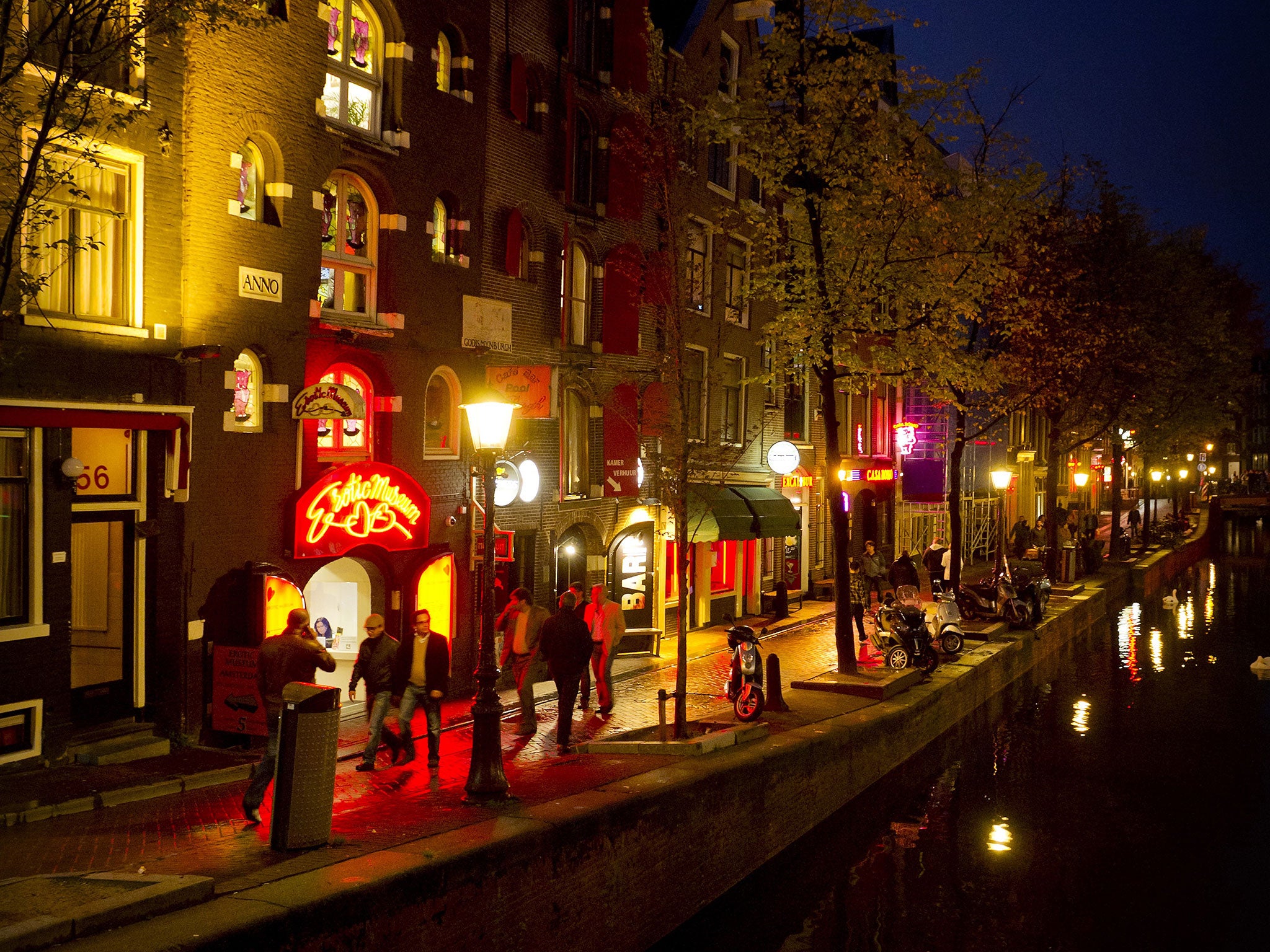This is what really happens when prostitution is decriminalised
The application form for opening a brothel in New Zealand is just two pages long: three pages shorter than the form needed to adopt a dog or cat from Battersea Dogs & Cats Home


The hardest battle I have ever fought as a feminist campaigner against male violence is against the expansion and normalisation of prostitution. During research for my book, in which I seek to expose the truth about the sex trade, I encountered a twisted version of reality – propagated by the so-called “sex worker’s rights” movement – that rebrands and sanitises the sex trade as a harmless service industry.
During two years I travelled 164,000 miles, interviewing 250 people around the world. The biggest obstacle I faced was the well-oiled propaganda machine that takes the truth about the sex trade and represents it to the world in the form of sanitised sop.
By closely analysing the reams of pro-prostitution academic research; looking at funders and supporters of the sex trade; asking questions about the so-called “benefits” of blanket decriminalisation; and listening closely to survivors of the sex trade, I uncovered the real story of what happens when the buying, selling and renting of female flesh is legally and culturally sanctioned.
New Zealand is regularly held up as the gold standard model of how to eradicate problems inherent to prostitution. In 2003 its government voted (by a majority of one) to decriminalise pimping, brothel owning and sex buying. The argument, led by the New Zealand Prostitutes Collective (NZPC), was as persuasive as it was misleading: removing all criminal laws from all aspects of the trade would lead to “worker’s rights” and safety for the women. Handily for sex trade entrepreneurs, this resulted in pimps and brothel owners being rebranded as “businessmen”. I heard a legal pimp in Nevada refer to his “business” as similar to that of McDonalds. Except in the case of prostitution, human beings, not dead flesh, are the product for sale.
Alongside other countries and states that have removed criminal penalties against sex trade exploiters, such as Holland, Germany, Nevada (US), and some states in Australia, New Zealand helped to make selling sex as respectable and devoid of red tape as selling cars. The application form for opening a brothel in New Zealand is just two pages long: three pages shorter than the form needed to adopt a dog or cat from Battersea Dogs & Cats Home.
One of the many survivors of the sex trade I met during my research is Sabrinna Valisce, who volunteered with the NZPC over a 25-year period. Valisce campaigned alongside her colleagues for blanket decriminalisation, but now regrets doing so. “I thought it would give more power and rights to the women,” she told me, “but I soon realised the opposite was true.”
According to Valisce, decriminalisation benefitted the punters and brothel owners rather than those selling sex within them.
“Brothel owners could choose their prices, they say all-inclusive [which means the punter can have sex with the woman he has paid for as many times as he wishes],” says Valisce. “So clients would go into the room, see a girl and she would have to deal with them wanting to do anything and everything.”
Under legalised and decriminalisation regimes, abuse suffered by the women is now considered an “occupational hazard”, like a stone dropped on a builder’s toe. In Amsterdam, which boasts “window brothels” where women are displayed in order that sex buyers can choose a woman to pay to penetrate, sex tourism is so normalised that even Thomas Cook used to offer guided tours around the red light areas of the city, during which children under three years old could go for free.
Across Holland, women have been imported by traffickers from Africa, Eastern Europe and Asia to meet the increased demand. There has been little or no support for women to exit prostitution, and the innate murkiness of the sex trade has not been washed away by legal benediction. As in Germany and Nevada, the close links between organised crime and prostitution has not been disrupted, and women are still being murdered by pimps and punters at an alarming rate.
A 2012 article in the journal World Development reported that “countries with legalised prostitution have a statistically significantly larger reported incidence of human trafficking inflows”.
Decriminalisation of the sex trade does nothing to protect those selling sex. I am one of many feminist abolitionists actively campaigning for an end to the criminalisation of prostituted people, and for the onus to be shifted onto the consumers. During the time I spent in legal brothels in Australia, Holland, Nevada and Germany, and so-called street “tolerance zones”, I found that the most pernicious effect of removing criminal sanctions from pimps and profiteers is the way it reframes prostitution as a straightforward commercial transaction, which, in turn, serves to hide the truth about the harm and abuse at the heart of the global sex trade.
Julie Bindel’s book “The Pimping of Prostitution: Abolishing the Sex Work Myth” will be published by Palgrave Macmillan on 27 September 2017
Join our commenting forum
Join thought-provoking conversations, follow other Independent readers and see their replies
Comments
Bookmark popover
Removed from bookmarks